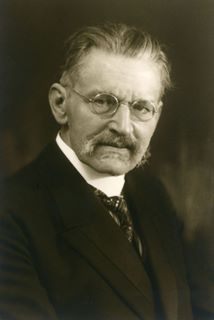|
Richard August Reitzenstein
Richard August Reitzenstein (2 April 1861, Breslau – 23 March 1931, Göttingen) was a German classical philologist and scholar of Ancient Greek religion, hermetism and Gnosticism. He is described by Kurt Rudolph as “one of the most stimulating Gnostic scholars.” With Wilhelm Bousset, he was one of the major figures of the ''Religionsgeschichtliche Schule'' ( history of religions school). His ''Poimandres: Studien zur Griechisch-Ägyptischen und frühchristlichen Literatur'' of 1904 was a pioneer scholarly study of the ''Poimandres'', which he compared to the '' Shepherd of Hermas''. In collaboration with the German Egyptologist Wilhelm Spiegelberg, Richard August Reitzenstein founded a famous collection of Greek and Egyptian papyri, purchased during an expedition in Egypt in 1898/99.Fr. COLIN, ''Comment la création d’une ‘bibliothèque de papyrus’ à Strasbourg compensa la perte des manuscrits précieux brûlés dans le siège de 1870'', La revue de la BNU, 2, 201 ... [...More Info...] [...Related Items...] OR: [Wikipedia] [Google] [Baidu] |
Richard Reitzenstein
Richard August Reitzenstein (2 April 1861, Breslau – 23 March 1931, Göttingen) was a German classical philologist and scholar of Ancient Greek religion, hermetism and Gnosticism. He is described by Kurt Rudolph as “one of the most stimulating Gnostic scholars.” With Wilhelm Bousset, he was one of the major figures of the ''Religionsgeschichtliche Schule'' (history of religions school). His ''Poimandres: Studien zur Griechisch-Ägyptischen und frühchristlichen Literatur'' of 1904 was a pioneer scholarly study of the ''Poimandres'', which he compared to the ''Shepherd of Hermas''. In collaboration with the German Egyptologist Wilhelm Spiegelberg, Richard August Reitzenstein founded a famous collection of Greek and Egyptian papyri, purchased during an expedition in Egypt in 1898/99.Fr. COLIN, ''Comment la création d’une ‘bibliothèque de papyrus’ à Strasbourg compensa la perte des manuscrits précieux brûlés dans le siège de 1870'', La revue de la BNU, 2, 2010, p. ... [...More Info...] [...Related Items...] OR: [Wikipedia] [Google] [Baidu] |
Wilhelm Spiegelberg
Wilhelm Spiegelberg (25 June 1870, Hannover – 23 December 1930, Munich) was a German Egyptologist. He specialized in analyses of Demotic and hieratic text. Spiegelberg grew up as the second oldest of four brothers in a German Jewish family. He studied Egyptology and archaeology in Strasbourg and Berlin, obtaining his doctorate from the University of Strasbourg in 1891. As a student his influences included Johannes Dümichen, Adolf Michaelis and Adolf Erman. After graduation, he continued his education in Paris as a student of Gaston Maspero. In 1899 he became an associate professor at Strasbourg, where in 1907 he obtained a full professorship. In 1919 he relocated to the University of Heidelberg, and four years later succeeded Friedrich Wilhelm von Bissing as chair of Egyptology at the University of Munich.Wilhelm Spiegelberg @ NDB/AD ... [...More Info...] [...Related Items...] OR: [Wikipedia] [Google] [Baidu] |
Scholars Of Greek Mythology And Religion
A scholar is a person who pursues academic and intellectual activities, particularly academics who apply their intellectualism into expertise in an area of study. A scholar can also be an academic, who works as a professor, teacher, or researcher at a university. An academic usually holds an advanced degree or a terminal degree, such as a master's degree or a doctorate (PhD). Independent scholars, such as philosophers and public intellectuals, work outside of the academy, yet publish in academic journals and participate in scholarly public discussion. Definitions In contemporary English usage, the term ''scholar'' sometimes is equivalent to the term ''academic'', and describes a university-educated individual who has achieved intellectual mastery of an academic discipline, as instructor and as researcher. Moreover, before the establishment of universities, the term ''scholar'' identified and described an intellectual person whose primary occupation was professional research. In 1 ... [...More Info...] [...Related Items...] OR: [Wikipedia] [Google] [Baidu] |
German Philologists
German(s) may refer to: * Germany (of or related to) **Germania (historical use) * Germans, citizens of Germany, people of German ancestry, or native speakers of the German language ** For citizens of Germany, see also German nationality law **Germanic peoples (Roman times) * German language **any of the Germanic languages * German cuisine, traditional foods of Germany People * German (given name) * German (surname) * Germán, a Spanish name Places * German (parish), Isle of Man * German, Albania, or Gërmej * German, Bulgaria * German, Iran * German, North Macedonia * German, New York, U.S. * Agios Germanos, Greece Other uses * German (mythology), a South Slavic mythological being * Germans (band), a Canadian rock band * "German" (song), a 2019 song by No Money Enterprise * ''The German'', a 2008 short film * "The Germans", an episode of ''Fawlty Towers'' * ''The German'', a nickname for Congolese rebel André Kisase Ngandu See also * Germanic (disambiguatio ... [...More Info...] [...Related Items...] OR: [Wikipedia] [Google] [Baidu] |
1931 Deaths
Events January * January 2 – South Dakota native Ernest Lawrence invents the cyclotron, used to accelerate particles to study nuclear physics. * January 4 – German pilot Elly Beinhorn begins her flight to Africa. * January 22 – Sir Isaac Isaacs is sworn in as the first Australian-born Governor-General of Australia. * January 25 – Mohandas Gandhi is again released from imprisonment in India. * January 27 – Pierre Laval forms a government in France. February * February 4 – Soviet leader Joseph Stalin gives a speech calling for rapid industrialization, arguing that only strong industrialized countries will win wars, while "weak" nations are "beaten". Stalin states: "We are fifty or a hundred years behind the advanced countries. We must make good this distance in ten years. Either we do it, or they will crush us." The first five-year plan in the Soviet Union is intensified, for the industrialization and collectivization of agriculture. * February 10 � ... [...More Info...] [...Related Items...] OR: [Wikipedia] [Google] [Baidu] |
1861 Births
Statistically, this year is considered the end of the whale oil industry and (in replacement) the beginning of the petroleum oil industry. Events January–March * January 1 ** Benito Juárez captures Mexico City. ** The first steam-powered carousel is recorded, in Bolton, England. * January 2 – Friedrich Wilhelm IV of Prussia dies, and is succeeded by Wilhelm I. * January 3 – American Civil War: Delaware votes not to secede from the Union. * January 9 – American Civil War: Mississippi becomes the second state to secede from the Union. * January 10 – American Civil War: Florida secedes from the Union. * January 11 – American Civil War: Alabama secedes from the Union. * January 12 – American Civil War: Major Robert Anderson sends dispatches to Washington. * January 19 – American Civil War: Georgia secedes from the Union. * January 21 – American Civil War: Jefferson Davis resigns from the United States Senate ... [...More Info...] [...Related Items...] OR: [Wikipedia] [Google] [Baidu] |
Apuleius
Apuleius (; also called Lucius Apuleius Madaurensis; c. 124 – after 170) was a Numidian Latin-language prose writer, Platonist philosopher and rhetorician. He lived in the Roman province of Numidia, in the Berber city of Madauros, modern-day M'Daourouch, Algeria. He studied Platonism in Athens, travelled to Italy, Asia Minor, and Egypt, and was an initiate in several cults or mysteries. The most famous incident in his life was when he was accused of using magic to gain the attentions (and fortune) of a wealthy widow. He declaimed and then distributed his own defense before the proconsul and a court of magistrates convened in Sabratha, near ancient Tripoli, Libya. This is known as the ''Apologia''. His most famous work is his bawdy picaresque novel the ''Metamorphoses'', otherwise known as ''The Golden Ass''. It is the only Latin novel that has survived in its entirety. It relates the adventures of its protagonist, Lucius, who experiments with magic and is accidentally t ... [...More Info...] [...Related Items...] OR: [Wikipedia] [Google] [Baidu] |
Cupid And Psyche
Cupid and Psyche is a story originally from ''Metamorphoses'' (also called ''The Golden Ass''), written in the 2nd century AD by Lucius Apuleius Madaurensis (or Platonicus). The tale concerns the overcoming of obstacles to the love between Psyche (; , , "Soul" or "Breath of Life") and Cupid (Latin ''Cupido'', "Desire") or Amor ("Love", Greek Eros, Ἔρως), and their ultimate union in a sacred marriage. Although the only extended narrative from antiquity is that of Apuleius from 2nd century AD, Eros and Psyche appear in Greek art as early as the 4th century BC. The story's Neoplatonic elements and allusions to mystery religions accommodate multiple interpretations, and it has been analyzed as an allegory and in light of folktale, '' Märchen'' or fairy tale, and myth. The story of Cupid and Psyche was known to Boccaccio in c. 1370, but the ''editio princeps'' dates to 1469. Ever since, the reception of ''Cupid and Psyche'' in the classical tradition has been extensive. The st ... [...More Info...] [...Related Items...] OR: [Wikipedia] [Google] [Baidu] |
Rudolf Bultmann
Rudolf Karl Bultmann (; 20 August 1884 – 30 July 1976) was a German Lutheran theologian and professor of the New Testament at the University of Marburg. He was one of the major figures of early-20th-century biblical studies. A prominent critic of liberal theology, Bultmann instead argued for an existentialist interpretation of the New Testament. His hermeneutical approach to the New Testament led him to be a proponent of dialectical theology. Bultmann is known for his belief that the historical analysis of the New Testament is both futile and unnecessary, given that the earliest Christian literature showed little interest in specific locations. Bultmann argued that all that matters is the "thatness," not the "whatness" of Jesus, i.e. only ''that'' Jesus existed, preached, and died by crucifixion matters, not what happened throughout his life. Bultmann relied on demythologization, an approach interpreting the mythological elements in the New Testament existentially. Bultma ... [...More Info...] [...Related Items...] OR: [Wikipedia] [Google] [Baidu] |
Shepherd Of Hermas
A shepherd or sheepherder is a person who tends, herds, feeds, or guards flocks of sheep. ''Shepherd'' derives from Old English ''sceaphierde (''sceap'' 'sheep' + ''hierde'' ' herder'). ''Shepherding is one of the world's oldest occupations, it exists in all parts of the globe, and it is an important part of pastoralist animal husbandry. Because of the ubiquity of the profession, many religions and cultures have symbolic or metaphorical references to the shepherd profession. For example, Jesus called himself the Good Shepherd, and ancient Greek mythologies highlighted shepherds such as Endymion and Daphnis. This symbolism and shepherds as characters are at the center of pastoral literature and art. Origins Shepherding is among the oldest occupations, beginning some 5,000 years ago in Asia Minor. Sheep were kept for their milk, meat and especially their wool. Over the next thousand years, sheep and shepherding spread throughout Eurasia. Henri Fleisch tentatively s ... [...More Info...] [...Related Items...] OR: [Wikipedia] [Google] [Baidu] |







